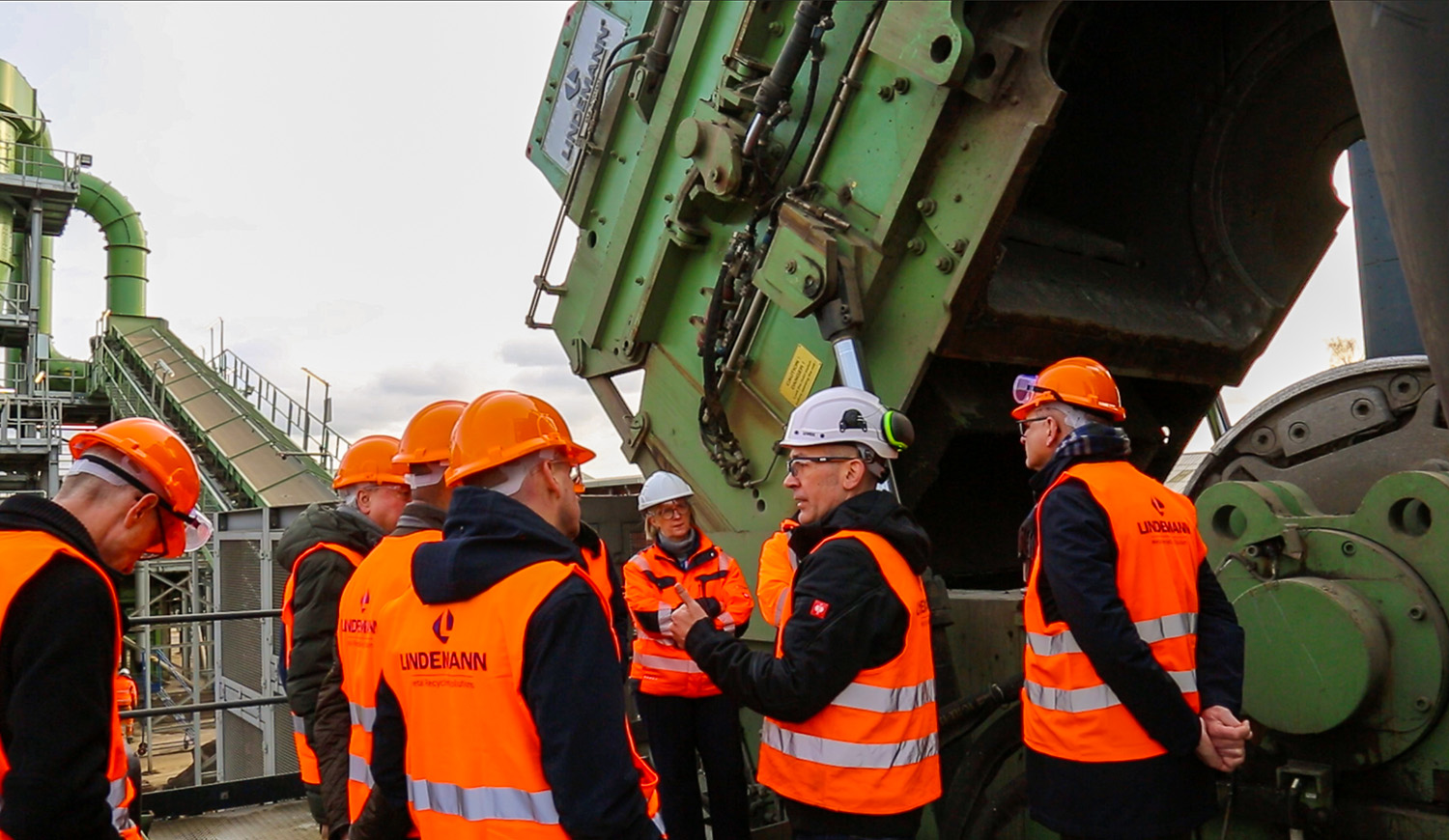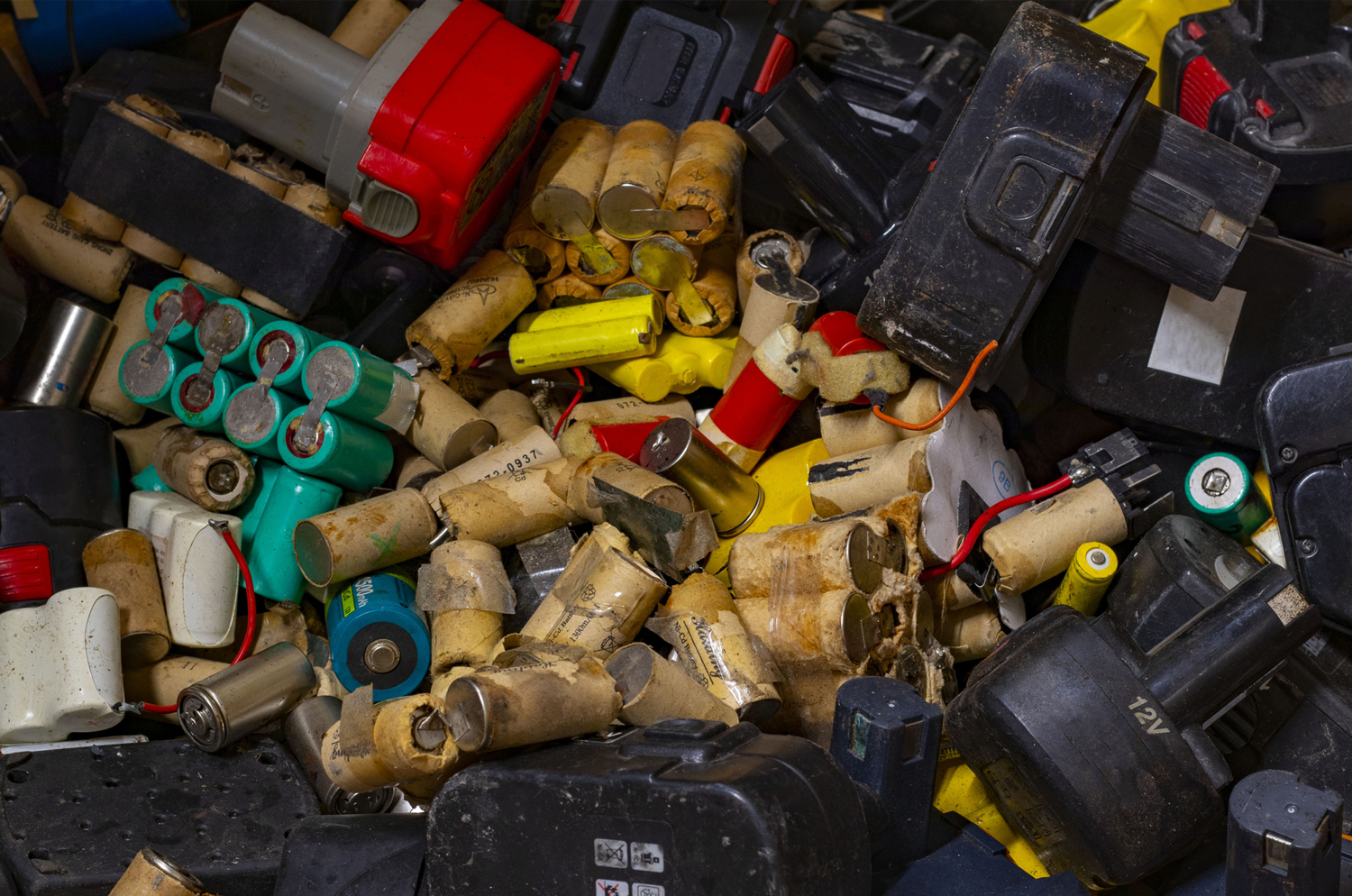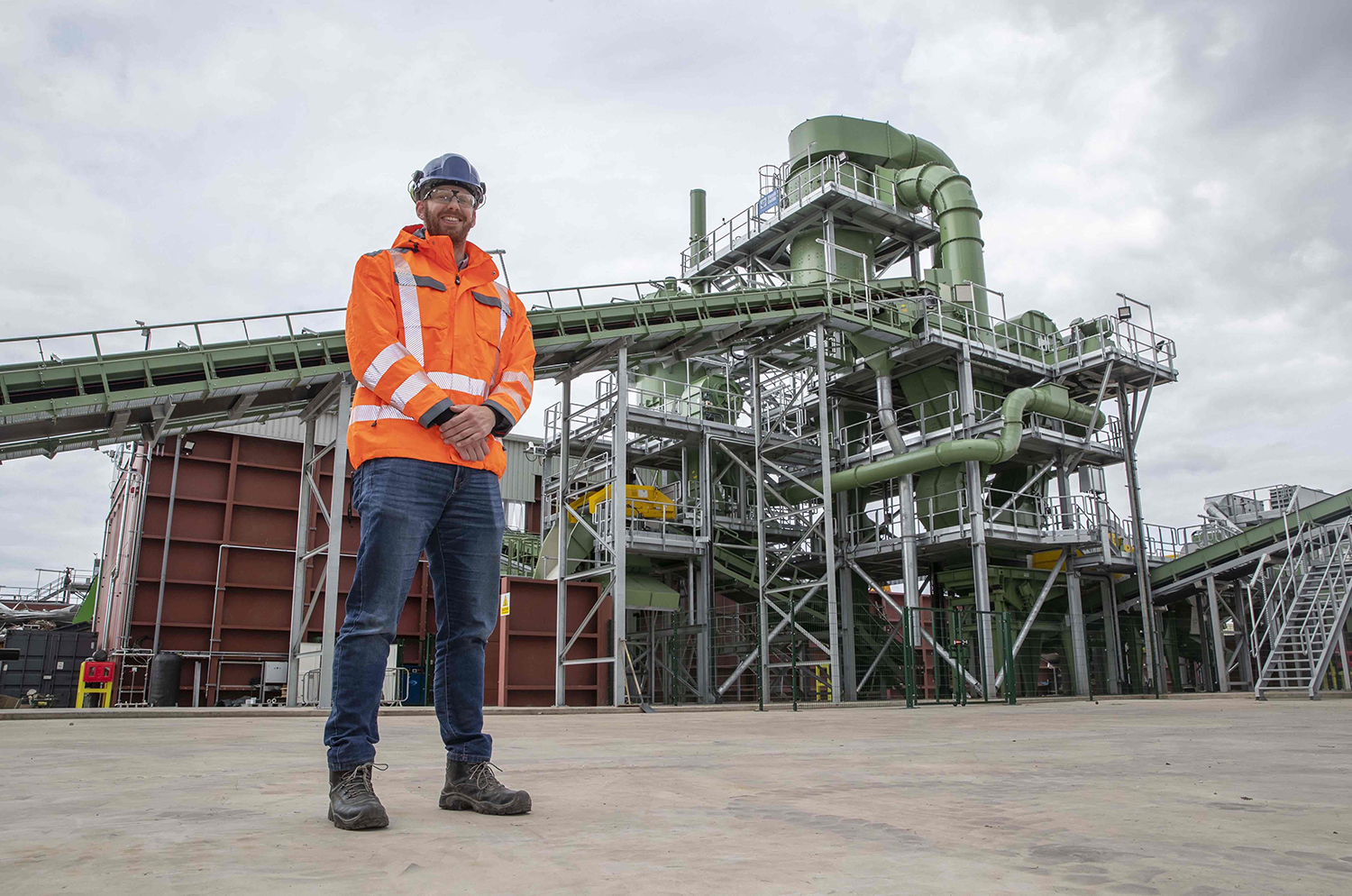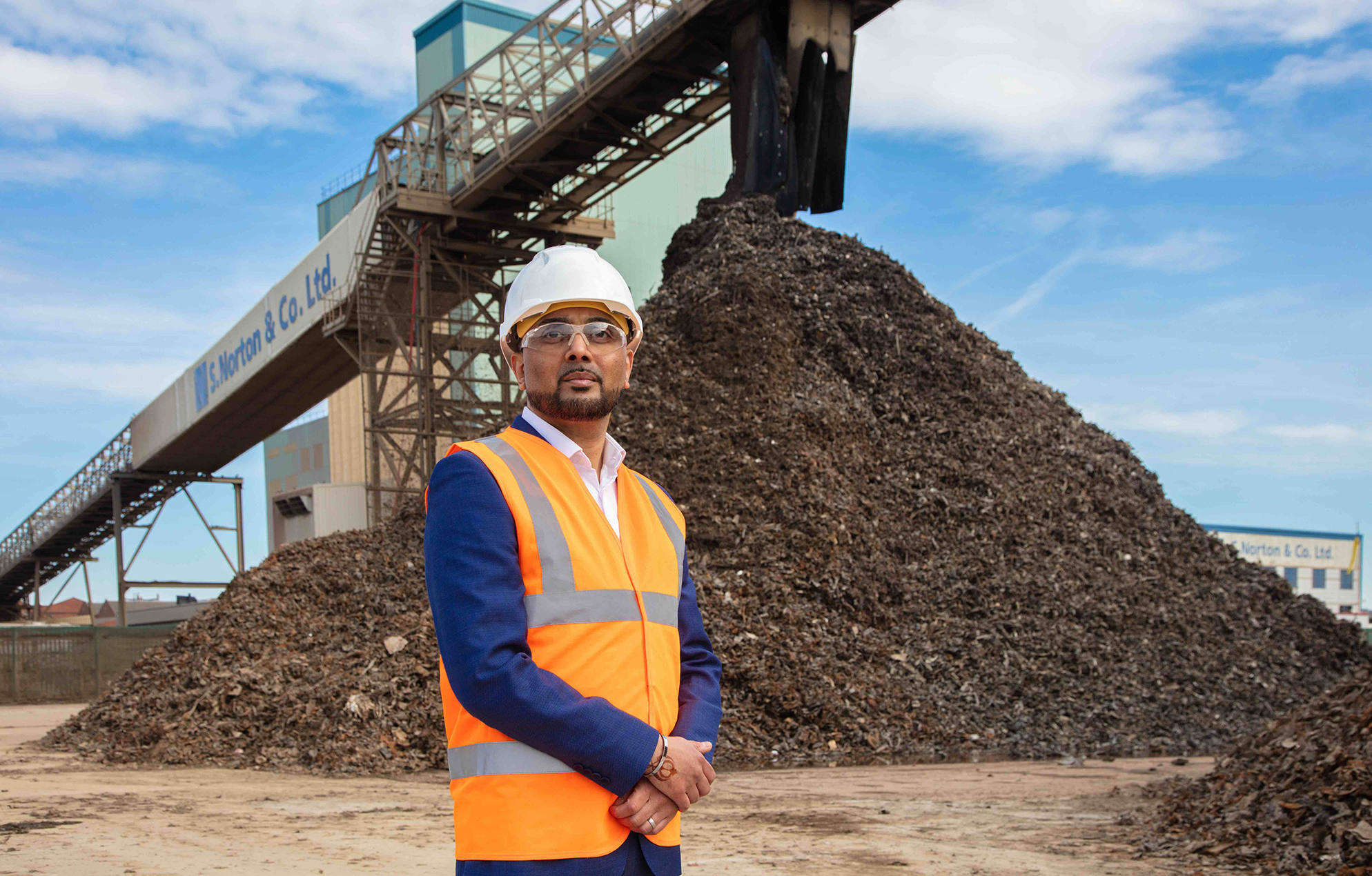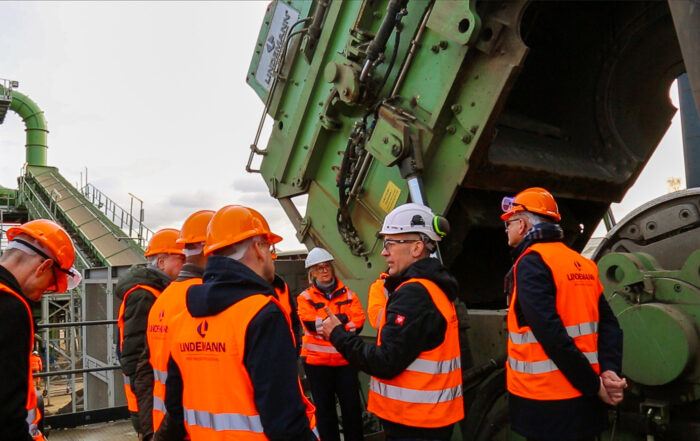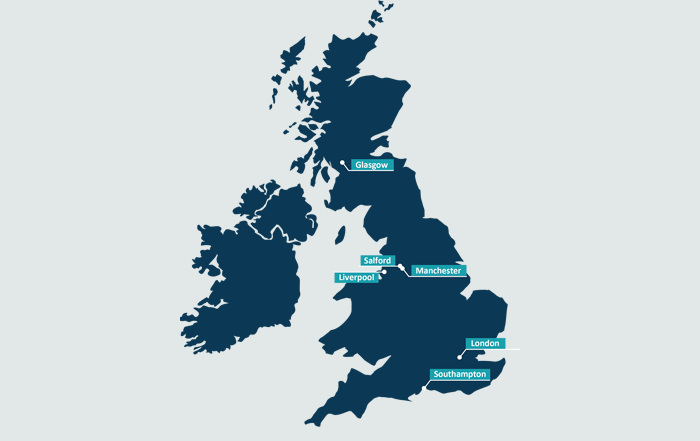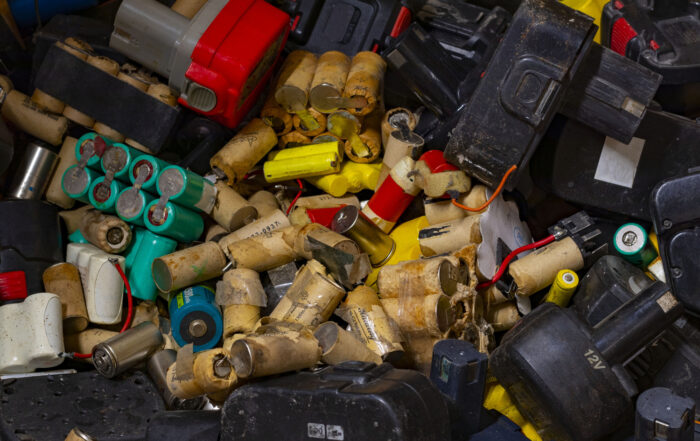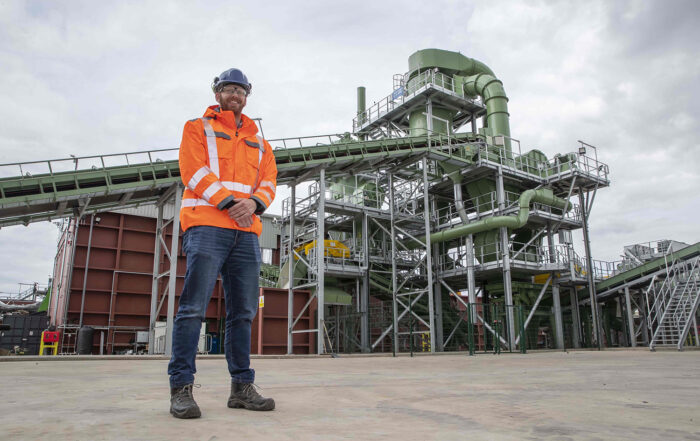NEWS
Growing recycling business acquires prime Glasgow sites to expand UK presence
Leaders in innovative recycling and a global exporter, S. Norton Group has finalised the acquisition of two significant sites in Glasgow as part of its ambitious growth plans.
S. Norton Group’s expansion into Glasgow aligns with its strategic aims to have a presence from end to end in the UK. This investment into a new location enhances the company’s national footprint, bringing the total number of sites to six and significantly increasing the Group’s collective capacity to collect, process and export waste metals from several major urban areas of the UK.
The primary site on the banks of the River Clyde spans 17 acres and is fully equipped with waste metals processing and export capabilities, representing a crucial addition to the S. Norton Group’s operations.
In addition to the main site, the acquisition includes the Glasgow East site, operating as a feeder facility to the primary location. Glasgow East covers 1.9 acres and specialises in receiving ferrous and non-ferrous metals from both trade and the general public, reflecting S. Norton Group’s commitment to efficient and accessible recycling services.
The Glasgow sites were previously owned by a metals recycling company. S. Norton Group has ensured a seamless transition, maintaining full operational continuity during the change of ownership. With 100% retention of the current 43-strong workforce, the company has reinforced its commitment to employee retention, now totalling 432 employees across all sites.
Tony Hayer, managing director of S. Norton Group, said:
“S. Norton has been in business for over 60 years and is at the forefront of the metals recycling industry. The acquisition of the Glasgow sites is part of our plan to grow the S. Norton Group and marks a significant step towards achieving our vision of working together towards a world where nothing goes to waste.
“As a responsible recycler, we have been working hard to ensure a smooth transition to S. Norton systems and to begin to develop the operations at both sites. I am delighted to welcome our new employees, suppliers and customers in Scotland. We’re open for business in Glasgow and we’re looking forward to working with you all”.
The acquisition of the Glasgow sites underpins S. Norton Group’s commitment to sustainability and resource efficiency as it remains dedicated to advancing responsible recycling practices, expanding its impact in critical regions and enhancing its reputation as a leading circular economy business.
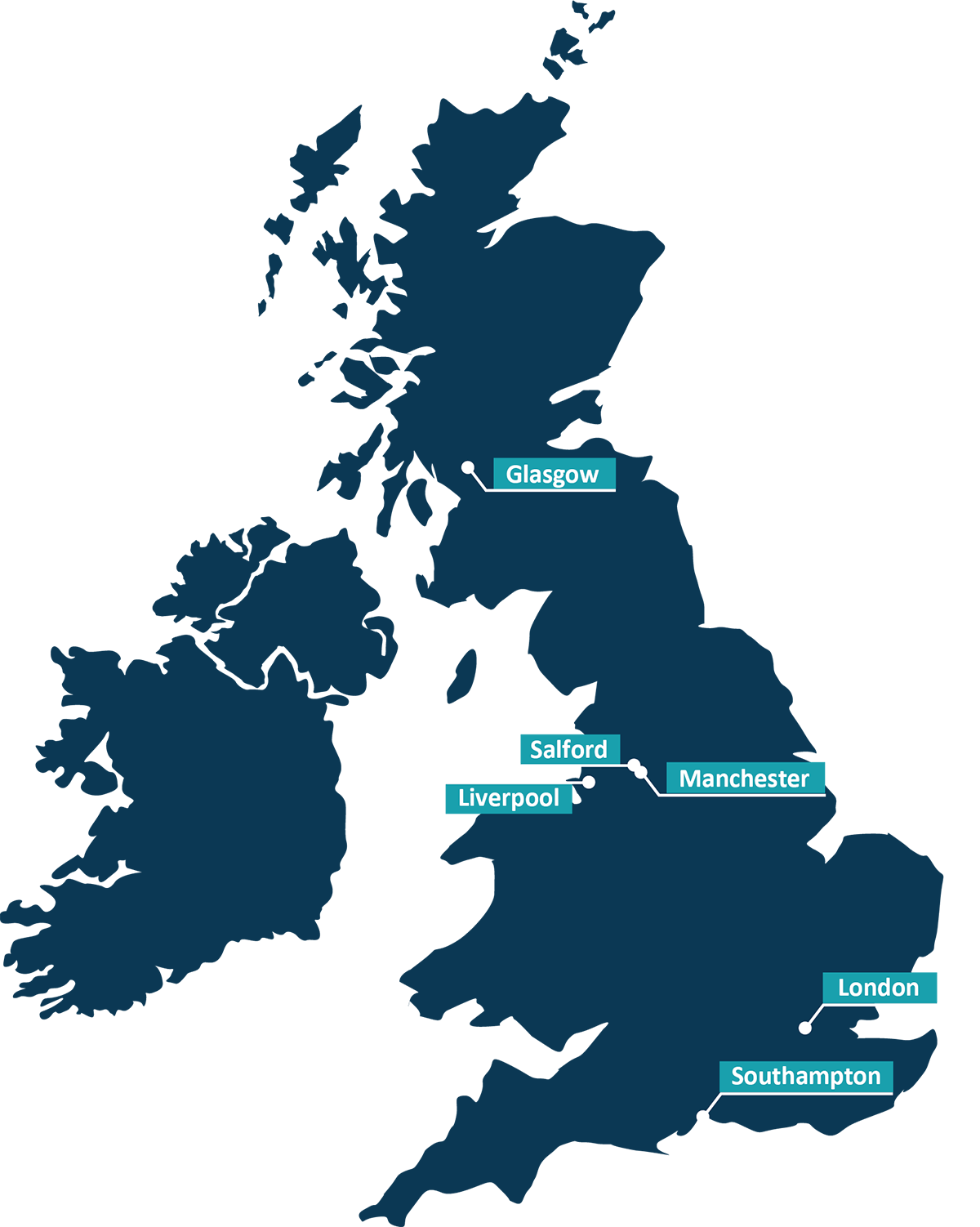
S. Norton Group calls on the Government to tackle loophole and increase battery recycling targets to reduce fire risk across industry
S. Norton Group is calling on the Department for Environment, Food and Rural Affairs (Defra) to strengthen battery recycling targets to improve safety for both communities and workers within the recycling sector.
Defra is due to consult on the waste batteries and accumulators regulations with the aim of drafting a comprehensive UK Battery Strategy which will play an essential role in meeting its net zero targets, as well as supporting economic growth.
Under existing regulations, battery producers must obtain evidence for the recycling of batteries which helps fund the recycling infrastructure. However, targets for portable batteries do little to incentivise the recycling of lower value, more problematic batteries such as alkaline, nickel cadmium and lithium-ion.
The broad target is that 45% of all batteries placed on the market each year are recycled, with no distinction between different types of batteries. As lead-acid batteries are easy to recycle and have inherent material value, they form the vast majority of the 45% that are recycled, accounting for over 70% of recycling. This is despite the fact that they represent only 3% of portable batteries placed on the market.
It is vital to increase the separation, collection and recycling of non-lead acid batteries, in particular lithium-ion, for which there is a severe lack of recycling facilities in the UK. According to the Environmental Services Association, lithium-ion batteries are responsible for around 50% of all waste fires occurring in the UK each year, as a result of being hidden in the waste stream. In addition to this, valuable materials such as the lithium and cobalt in the batteries are not recovered, doing nothing to aid our transition to the circular economy.
Setting specific targets for the various battery types would encourage the separation and recycling of all batteries including lithium-ion, resulting in improved collection rates and higher safety standards. The funds from the compliance scheme could be used to develop the much-needed infrastructure and communication.
Richard McKinley, head of technical development at S. Norton Group, said:
“Current UK regulations include targets which are not robust enough. They do not specify how the target is achieved, leading to a focus on recycling lead-acid batteries, rather than the more problematic lithium-ion batteries. There is no incentive to recycle highly flammable lithium-ion batteries and there are very few outlets for them. This means there is not enough focus on systematically removing, collecting and recycling batteries from items such as waste electricals and the batteries can find their way into other waste streams, creating a high risk of fires across the recycling industry.”
S. Norton Group is calling for specific recycling targets for each of the battery types to incentivise the development of battery recycling processes and to minimise the number of Lithium-ion batteries finding their way into the waste stream.
Tony Hayer, managing director of S. Norton Group, adds:
“At S. Norton Group, we have invested heavily in measures to minimise the risk of incidents caused by lithium-ion battery fires. We manually sort through every load of waste before it is accepted across our sites, we work closely with the Fire Service to make sure our fire procedures are the best they can be and we install the best-in-class fire-fighting equipment as we continue to invest in our sites. However, tougher regulation is needed to force change in the industry and the supply chain, to ensure that batteries are separated, collected and disposed of correctly. If this 45% recycling target is applied to each battery category, it will lead to a tightening of the manufacturer compliance schemes that will help to keep lithium-ion batteries out of the waste stream and ultimately result in a safer environment for all.”
Key facts about WEEE in the UK
In the first half of 2023, almost 240,000 metric tonnes of household waste electrical and electronic equipment was collected in the UK. This is equates to 50.7% of the target for 2023 and means that the country is on track to achieve its collection target for the first time since 2017. The UK is one of the biggest producers of e-waste in the world.
Types of e-waste
WEEE, often referred to as e-waste, consists of electronic products that are discarded at the end of their useful life. Types of e-waste include phones, computers, toys, power tools and lights, as well as large household appliances such as fridges, microwaves, and washing machines, which make up the largest volume of collected e-waste in the UK.
E-waste is a growing problem
E-waste is one of the fastest-growing waste streams in the world, and there are health concerns over the way it is disposed of and illegal exports to developing countries. With a lack of proper waste management, electronics are often burnt, resulting in the likely contamination of soil, water and food.* Source: Statista.
S. Norton Group makes huge £20m investment in first-of-its-kind new facility to drive future growth and boost productivity.
S. Norton Group has announced a significant £20m investment that is set to drive growth, bolster the firm’s sustainability credentials, and increase shredding capacity by more than 50%.
Leaders in innovative recycling and a global exporter, S. Norton Group has made the ambitious investment to design, build and commission a new world class metals shredder facility at its Manchester site. This major upgrade increases the Group’s capacity to shred waste metals with a much greater throughput, producing higher quality ferrous and non-ferrous scrap metals and significantly increasing its capacity for processing waste electrical and electronic equipment (WEEE).
Managed by S. Norton’s in-house engineering team, the new installation demonstrates the company’s commitment to innovation. Utilising the latest technology, the new 3000 hp Lindemann shredder is one of the most efficient in the world and the first-of-its-kind in the world with its sophisticated drive system. It also includes a bespoke and fully automated fire detection and suppression system, ensuring world class safety standards.
In addition to increased productivity, the new installation with its Venti Oelde downstream system has been purposefully designed to ensure environmental benefits such as improved dust abatement, reduced emissions to atmosphere and lower energy consumption.
Tony Hayer, Managing Director, said:
“We are committed to continually improving and investing in our operations to ensure that we remain at the forefront of recycling. Our engineering team has done an excellent job of designing and managing this major capital expenditure project, maintaining focus on optimising efficiency and improving the process. We are working to ensure that the company is in a position to grow, offering responsible recycling solutions for all forms of scrap metal and WEEE.”
David Hobson, Engineering Lead, said:
“The new shredder plant at Manchester is a world class installation that utilises the very latest and innovative technology options. The design sets the business up for the future and wouldn’t have been possible without the hard work and dedication of everyone involved within the business and the collaborative effort with our suppliers.”
Oonagh Kavanagh, Group Commercial Manager, said:
“This latest investment in advanced processing technology demonstrates S. Norton’s expertise and innovation in providing sustainable solutions in a complex and challenging market. The company remains focused on providing the highest level of service to which our customers are accustomed and we look forward to this new chapter in our history as we deliver ambitious investments in recycling technology to support the drive to a resource efficient economy.”
This latest investment again demonstrates the company’s commitment to realising its vision of living in a world where nothing goes to waste, by providing technology for the processing of a range of materials including waste electrical goods (WEEE) and end of life vehicles.
Gabe’s Law
We at S. Norton are supporting Johnny Santer and his campaign to bring in the Multi-Storey Car Parks Safety Bill on behalf of his son, Gabriel Jack Santer, or Gabe as he was more commonly known.
Johnny is campaigning to increase the minimum required height of guarding in multi-storey car parks after his son fell from the top of an open-roofed, multi-storey car park on October 3, 2020. He was just 15 years old. Johnny is also campaigning to make provisions about increasing the height of guarding in existing multi-storey car parks and for them to require 24-hour staffing.
A popular, friendly, and lively young boy, Gabe’s death was as preventable as it was senseless. Johnny is determined to ensure that his son’s death will not be in vain, and wants to guarantee that no other person finds it so easy to fall or jump from an open-roofed, multi-storey car park.
S. Norton wants to help Johnny achieve that aim and will therefore be supporting his future endeavours in lobbying the Government to bring about these important changes.
Restructure and new MD steer S. Norton Group into exciting period of growth
Leaders in innovative recycling and global exporter, S. Norton Group has revealed its vision for growth following a restructure of the Group and the appointment of new managing director, Tony Hayer.
Founded in 1962, the company has long established metals recycling operations across the UK in Liverpool, Manchester, London and Southampton.
Compared with using raw materials to manufacture metals and plastics, recycling saves energy and helps protect the environment. S. Norton Group supports a circular economy nationally and internationally by collecting, processing and distributing approx. 1.5m tonnes of recycled metals each year. The company recycles 95% of all materials it processes, with a target of sending zero waste to landfill; an objective it constantly strives towards. This is all part of the company’s vision to work together towards a world where nothing goes to waste.
Among the many actions implemented to take the successful business into the future is a restructuring to fully integrate the work of subsidiary, Axion Polymers, which was acquired in 2018. This has enabled the company to provide integrated end to end solutions for its customers for both metals and plastics.
Heading up this new era at S. Norton Group, Tony Hayer brings a wealth of experience, drawing on 20 years’ of working on large scale projects and business management. Together with the board, a restructured management team and the recent appointment of a new non-executive director, he has implemented new structures and systems to enable the company to focus on growth, increase its market share and support the delivery of sustainability goals for metal and plastic production.
Setting out his vision, Tony Hayer, Managing Director, S. Norton Group, said:
“Now in its 60th anniversary year, S. Norton Group is a hugely respected company in the industry. We are positioning the company for the future, building on its position as leaders in metals recycling innovation. We are committed to delivering a circular economy for waste metals, ensuring valuable raw materials are responsibly recycled and diverted from landfill. That commitment is at the heart of our vision for the company, as we continue to improve our processes and push toward measurable outcomes that demonstrate sustainability, ethical business practices and social responsibility from grass roots up.
“Having been at the company since 2019, we have delved deep into the values that have made this family business an outstanding employer for the past six decades. Our company values demonstrate our way of working and provide a framework for all our activities. We are actively encouraging all of our employees to work to these values and behaviours. We pledge to take S. Norton Group to the next level, while still keeping our people and our culture – which is the driving force of the business – at the forefront of our operations.”
Graham Donohue, Finance Director, S. Norton Group, added:
“Tony understands the S. Norton Group, the sector and the importance of growing the company from within while managing workflow and investment. I look forward to working with him as we drive the company into a really exciting period of growth.”
At the heart of this innovation agenda, the company has undertaken a number of projects to implement or improve recycling processes with the likes of Warwick Manufacturing Group, where it was part of a consortium to establish a new automotive battery pack manufacturing research centre, and Jaguar Land Rover, to carry out an R&D project to refine the process of turning aluminium derived from end-of-life vehicles, into new raw materials for use in the automotive sector.
A family-run business, S. Norton employs people across the UK, almost half of which are employed in the Liverpool City Region, and it promotes working with local suppliers in the communities it operates. As a responsible recycler it has achieved and upheld ISO 9001:2015, ISO 14001:2015 and ISO 45001 for its quality, environmental and health and safety management systems.
S. Norton Group showcases £20m shredder for metals recycling CEOs
S. Norton Group hosted a tour of its latest £20m investment in state-of-the-art shredder technology for 17 senior leaders in the European metals recycling industry to showcase its success in boosting operational and energy-saving efficiencies. [...]
Growing recycling business acquires prime Glasgow sites to expand UK presence
Leaders in innovative recycling and a global exporter, S. Norton Group has finalised the acquisition of two significant sites in Glasgow as part of its ambitious growth plans. S. Norton Group’s expansion into Glasgow aligns [...]
S. Norton Group calls on the Government to tackle loophole and increase battery recycling targets to reduce fire risk across industry
S. Norton Group is calling on the Department for Environment, Food and Rural Affairs (Defra) to strengthen battery recycling targets to improve safety for both communities and workers within the recycling sector. Defra is due [...]
S. Norton Group makes huge £20m investment in first-of-its-kind new facility to drive future growth and boost productivity.
S. Norton Group has designed, built and commissioned a new world class metals shredder facility at its Manchester site. This major upgrade increases the Group’s capacity to shred waste metals, producing higher quality ferrous and non-ferrous scrap metals and significantly increasing its capacity for processing waste electrical and electronic equipment (WEEE).


